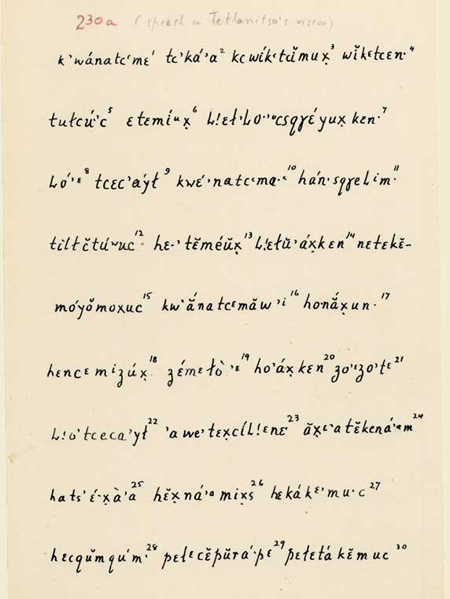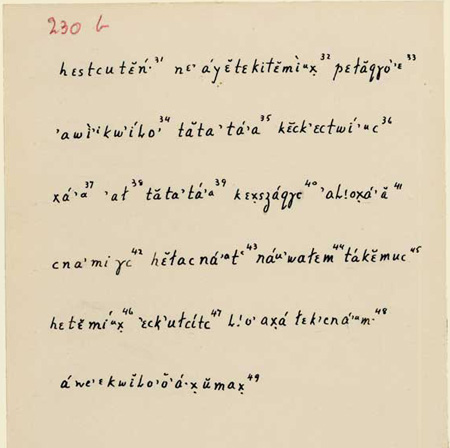|
"Speech in Tetlenitsa's vision"; Speech, in Ntlakyapamuk (Interior Salish), of one of Chief Tetlenitsa's "manitou", accompanying the song of his vision. © Canadian Museum of Civilization, Archives, Electronic fonds, Ottawa, 1912, CDA-2004-003-002 & 003.VI-M-4 (230 a, b). Speech accompanying the song of Chief Tetlenitsa's vision; translated into English by James Alexander Teit and adapted by Marius Barbeau. "Now, look at me! Does thou not recognize me? The speech was revealed to Chief John Tetlenitsa around 1897, during a dream that transformed into a vision, while he was working on a government road below Sywah Creek near Yale in British Columbia. One of his "manitou" guardians appeared to him, during the night, in the form of an old man with long white hair that covered, like a priest's cassock, his otherwise naked body. Speaking to Chief Telanistsa, the old mystic gave this speech while singing the song of his vision. He had come to warn him of imminent danger, of certain death, if he didn't start chanting this song immediately. Tetlenitsa began singing in his dream, then when waking up, he continued his song, accompanied by his wife, whom he had told about his dream. The following day, at noon, Chief Tetlenitsa was the victim of a work accident, which he miraculously survived. |

